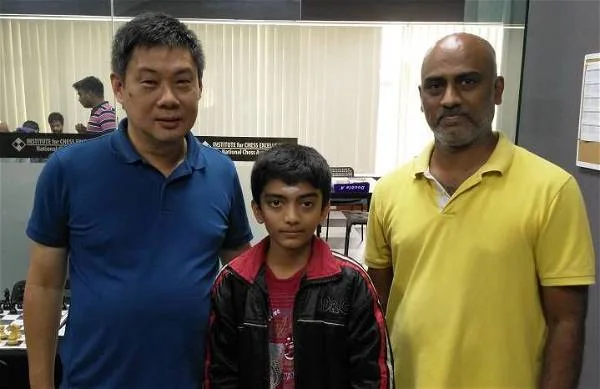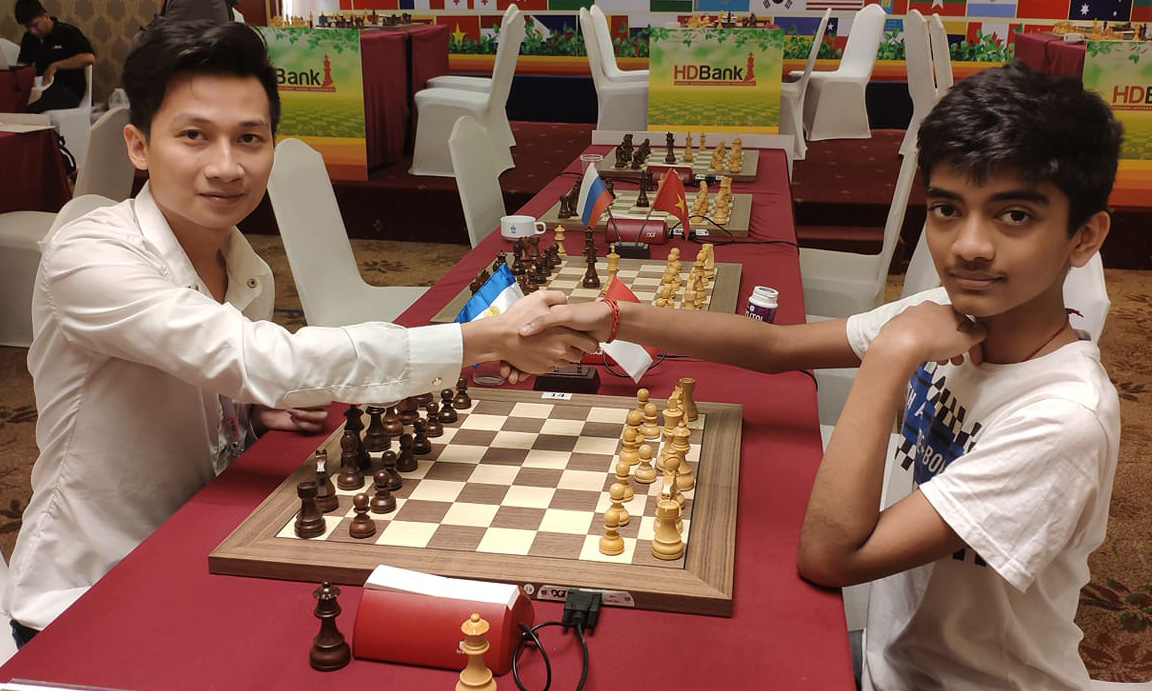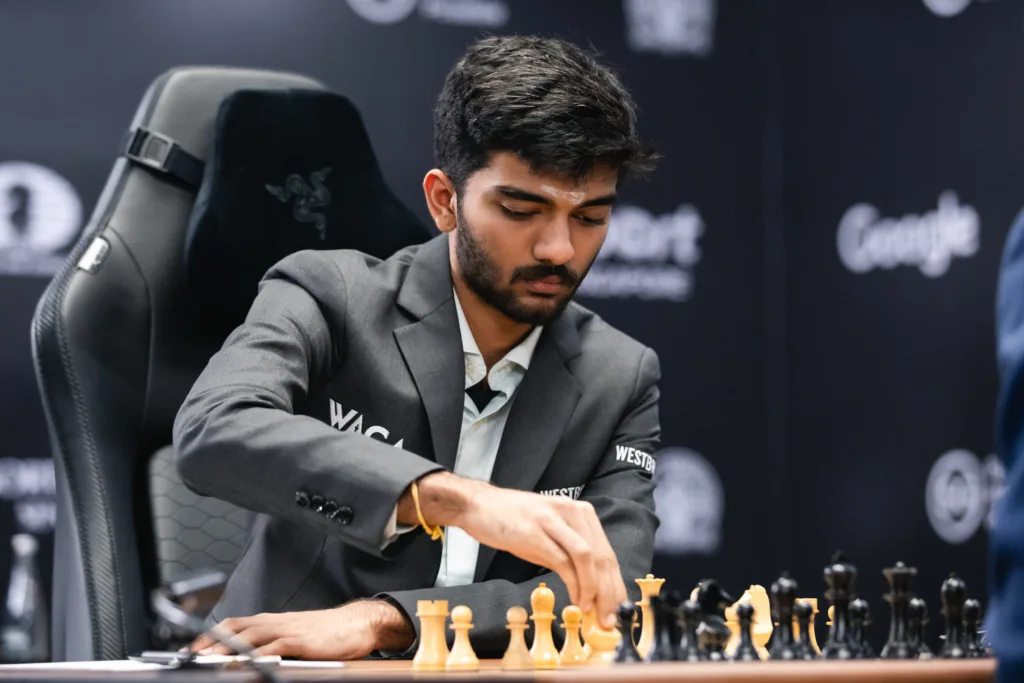Gukesh Dommaraju’s journey to the 2024 world chess championship was a testament to huge dedication and sacrifice, both from him and his family. With no external financial support during his formative years, his parents relied almost entirely on their income, even taking on loans to fund his participation in tournaments.
*Please note that the following interview was conducted in March 2022, a few years after Gukesh became the second-youngest Grandmaster (GM) at the time (now the third-youngest in history).
His father, Dr. Rajini Kanth, revealed that until Gukesh reached a 2300 rating in July 2017, he primarily competed in tournaments within India due to financial constraints. However, recognizing the necessity of international exposure, the family made bold decisions to invest heavily in his chess career.
Between 2017 and early 2019, they spent nearly $25,000–$30,000 annually on travel, accommodation, with family income covering the majority of the costs. Their gamble paid off when Gukesh secured all his IM and GM norms within just 15 months, becoming the second-youngest GM in history by January 2019.
Now, at just 18 years old, Gukesh is playing in the 2024 World Chess Championship against reigning champion Ding Liren. If Gukesh win, he will be the youngest world chess champion ever.
- What are the advantages and disadvantages to a young chess player in India?
Advantages, I feel, include heavy and healthy competition and the urge to excel and overtake each other, which drives more effort to stay focused. The disadvantage is also this same competition, as it brings a lot of peer pressure and the need for full family support; otherwise, it’s very difficult with just talent.
- What does the Indian government do to support young players?
Personally, we didn’t get any, especially when you’re young and just beginning. It’s all our own efforts and support. Maybe after establishing yourself or achieving a title, you get some awards or support from the government, which I honestly feel should be the other way around.
- You know there are three big obstacles Vietnamese players have to overcome: financial status, chess environment, and family determination. What are the obstacles for young players in India?
In India, the chess environment is good, with many coaches and a lot of events at all levels, from beginners to advanced, where you can hone your skills and improve. But financial support doesn’t happen to everyone. Either you need to have a solid family background and financial adequacy, or you need political influence and sponsors, but that’s maybe 1 or 2%. The rest either struggle and quit or just try harder and fight it out, but they could never reach their true potential because of a lack of opportunities to travel abroad or access higher-level coaching.

- Before Gukesh became the second-youngest GM in history, how did you get the financial support to play at various tournaments, like in Europe, to get those norms? Was that government-funded, privately funded, or via sponsorship?
As I answered previously, there was absolutely no support until he became an IM in 2018. It was mainly from family income, with both me and my wife being doctors. We took the efforts to support as much as we could. That’s the main reason Gukesh played mainly in India until he reached close to the 2300 level. Then we realized he needed to travel to Europe to score norms.
Both my wife and I took some major decisions around early 2017 to risk our finances and take loans for a year or two to see what he was capable of and then decide further. Luckily, within 15 months of that decision, he scored all three IM norms as well as three GM norms, becoming the second-youngest GM at the time in January 2019. During that period, from mid-2017 to January 2019, we traveled extensively and played many tournaments—all on our own expenses.
After he became an IM in March 2018, we got some financial support from his school recognizing his achievement. Microsense Networks also gave a cash award of around $7,000, which we used to push further for GM norm events and training.
However, we were spending close to $25,000–$30,000 per year during that period on travel, accommodation, and other expenses. So, it was mainly our family income covering about three-fourths of the expenditure. A government cash award of nearly $10,000 came only after he became a GM.
- Is Gukesh having any sponsors at the moment?
Microsense Networks supported him with around $7,000 per year in 2019 after he became a GM and assured similar support for the next few years. Unfortunately, COVID-19 stopped travel and tournaments for the majority of 2020 and 2021, so we didn’t claim the full amount and are unsure if they intend to continue.
Still, the major support is family income plus Gukesh’s prize money from events, which has significantly reduced our financial burden.
- Abhimanyu Mishra’s father had to spend more than $200,000 for his son to become a GM. What’s the case with Gukesh or other Indian chess prodigies? I’d love to know how you spent on Gukesh’s chess career, such as tournament entry fees, travel, accommodation, private tutors, or something like that.
I haven’t kept exact accounts of how much we spent, so I’m not sure about the details. But we spent whatever we could within our capacity to give him maximum chances, and he completely deserved it for the effort and hard work he put in.
Very few prodigies from India are fortunate enough to get full-fledged sponsors. It depends on the influence and approach the parents can make to secure them. Maybe I wasn’t smart enough! But that’s the case for the majority of people.
Fortunately, my wife and I were able to afford and ride out the tough phase until he became a GM. Now, Gukesh himself performs and earns enough to cover most of his expenses. So, the lack of a proper sponsor isn’t as big a deal now financially as it was before he became a GM.
For the past year, the major relief in coaching expenses has been provided by the Westbridge Anand Chess Academy, managed by Vishy Anand himself. Gukesh gets high-level coaching at no expense, which is a huge relief. Thanks to Vishy sir and Westbridge Pvt. Ltd.

I’m Xuan Binh, the founder of Attacking Chess, and the Deputy Head of Communications at the Vietnam Chess Federation (VCF). My chess.com and lichess rating is above 2300. Send me a challenge or message via Lichess. Follow me on Twitter (X) or Facebook.


1 thought on “Behind Gukesh’s Success: The Sacrifices That Built a Chess Prodigy”
Comments are closed.